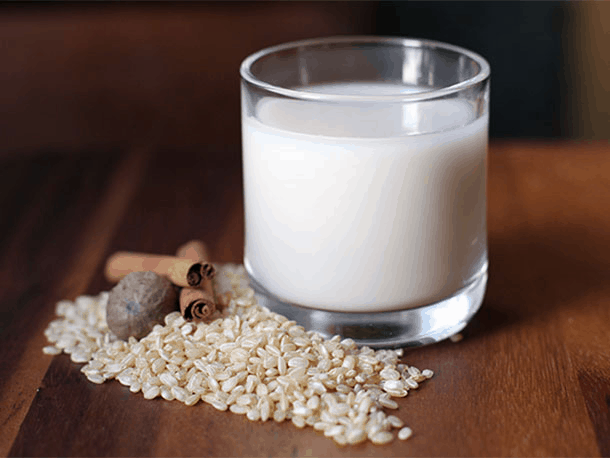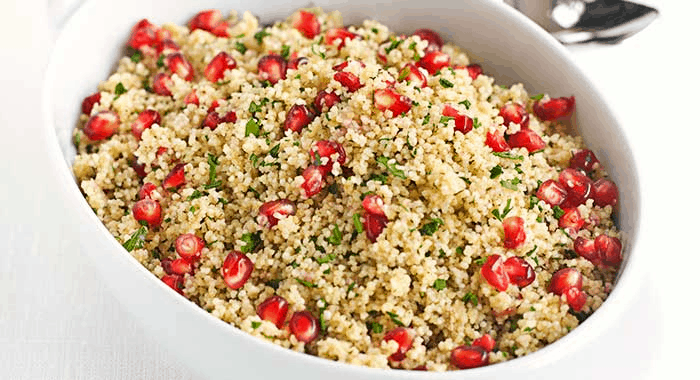You’ll be shocked to find out what they are.
A lot of the foods we snack on or eat as part of our everyday diet aren’t the beacons of health and wellness we think they are. Grocery items that are emblazoned with “organic”, “low-fat”, and “no sugar added”, seem healthier and are usually our first choices, for the most part, they’re just marketing jargon.
If you’re wondering why you have yet to see a difference in your body, there’s a good chance these 8 seemingly “healthy” foods are likely culprits.
Multigrain/Wholemeal Bread
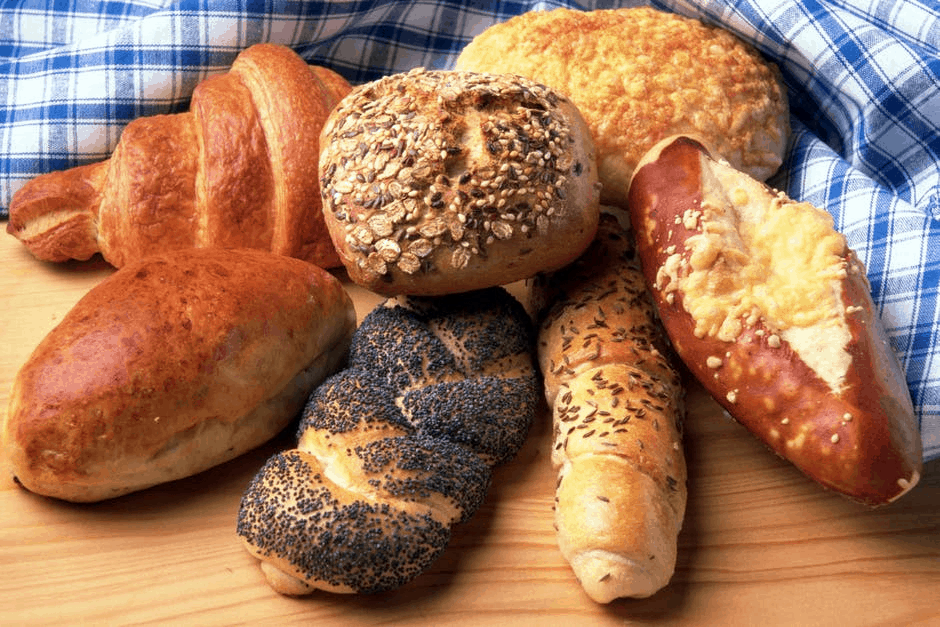
Here’s something that will shock you: “Made with whole grains” is one of the biggest lies in the food industry.
That’s right, your wholemeal bread can be just as unhealthy as white bread!
Words like “multigrain”, “wheat” and “7 grain” on the food label don’t mean that much unless they are actually made of out 100% whole grains. Many loaves of bread labeled this way actually only contain a small amount of whole grain and the rest of which is made out of refined flour.
Refined flour lacks fiber and can make your blood sugar levels spike faster after eating, leading to increased cravings and subsequent binging. In the long run, it can contribute to weight gain and high blood sugar levels.
Be a smarter bread shopper! If the first flour listed on the label is refined (look out for “bleached” or “unbleached enriched wheat flour”), it’s not really a whole grain product. Keep an eye out for those that say “100% whole meal” or “100% whole grain” instead.
Rice Milk
Unless its fortified, rice milk is “simply fluid from rice that’s naturally high in carbohydrates, low in protein and calcium.” If you can eat dairy, you’re far better off with organic cow’s milk, which contains calcium, potassium, vitamin A, vitamin D, vitamin B12, riboflavin, and magnesium. Soy and almond milk are also healthier non-dairy alternatives.
Dried Fruit
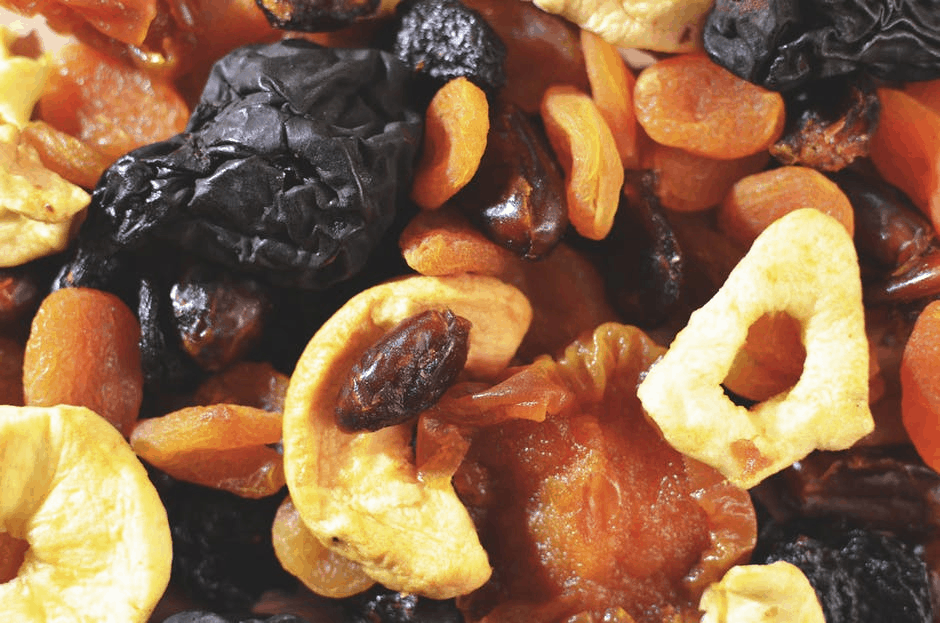
We like to think of fruit as nature’s candy (goofy as it sounds) which is generally accurate, but unfortunately the majority of dried fruit products include copious amounts of added sugars and sulfur to extend the shelf life. To mass produce dried fruit, companies add chemicals such as sulfur dioxide and acrylamide, which studies have shown can cause stomach pains, asthma attacks, and nerve damage.
Though you’re still getting a good source of vitamins, minerals, and fiber, it’s incredibly easy to pile up the calories and your sugar intake. Believe it or not, one cup of fresh cranberries contains four grams of sugar while one cup of dried cranberries contains a whopping 70 grams!
Raisins, dried cranberries, pineapples, mangos, dates, or figs – you name it. They all have at least 3 times more calories per volume than its fresh counterpart. A bag of banana chips has three times as many calories as a banana and 20% more fat. If you must eat dried fruit, look for unsweetened and unsulfured varieties – choosing fresh fruit instead whenever possible.
“Low Fat” Milk/Yogurt

Whenever you see a dairy product marked fat-free or low-fat, you can almost automatically assume it has more sugar and additives to make the product more palatable. Many low-fat and fat-free yogurts have the appearance of healthy treats, but they are so high in sugar that they are essentially desserts.
A meta-analysis of 16 studies found that people who ate the most high-fat dairy foods had the lowest risk for obesity, diabetes, and cardiovascular disease. Another study showed that people who ate the most full-fat dairy had a 69% lower risk of cardiovascular death than those who ate the least. This is because “low fat” milk is skimping on a lot of the factors that make whole milk so healthy. Yes, you’re getting rid of the fat, but you’re also stripping away essential vitamins and making it up with synthetic compounds.
Even if the real version (say butter instead of margarine) has a higher calorie count, it will likely not have all the chemicals, preservatives, sugars, or otherwise dubious additives companies use to reduce the fat and or calorie content. Furthermore, you might simply eat less of whole-fat dairy products like yogurt since fat and protein are more satiating than sugar and carbohydrate.
“Reduced Fat” Peanut Butter
Low fat peanut butters are rarely a nutritional bargain. The fat is processed out, but the calories remain the same because sugar and other fillers are added. Since the fat is removed, the creamy texture we’ve all come to love is missing and manufacturers tend to replace it with corn starches and sugars.
The result is not only a product with the same amount of calories, but a less favorable nutritional profile. Reduced-fat peanut butter has fewer of peanuts’ heart-healthy monounsaturated fats and more of the refined carbs and sugar that spike blood sugar. It’s a nutritionally bankrupt swap if ever there was one. Go for natural peanut butters, which contains only peanuts and oil.
Cereals
We love our Koko Crunch, Honey Cornflakes and Lucky Charms; and have long relied on it as a trusty breakfast staple. While they sure help with the convenience, store-bought cereals also hide an insane amount of sugar.
The average amount of sugar ranges from 5 to 20 grams per serving (the size of your palm!), but since most of us blatantly ignore the serving sizes anyway, we tend to pile up on the sugar.

Furthermore, many cereals have synthetic compounds added that the body is simply not designed to utilize – which is expected of any processed foods. These compounds are actually treated as toxins and are eliminated by your body as quickly as possible since it might cause imbalances in the body.
On top of this, the body cannot absorb many key nutrients if they are not consumed with foods that contain saturated fat. If you’re eating boxed cereal with low-fat or skim milk, the vitamins and minerals added in are providing virtually no nutritional benefit.
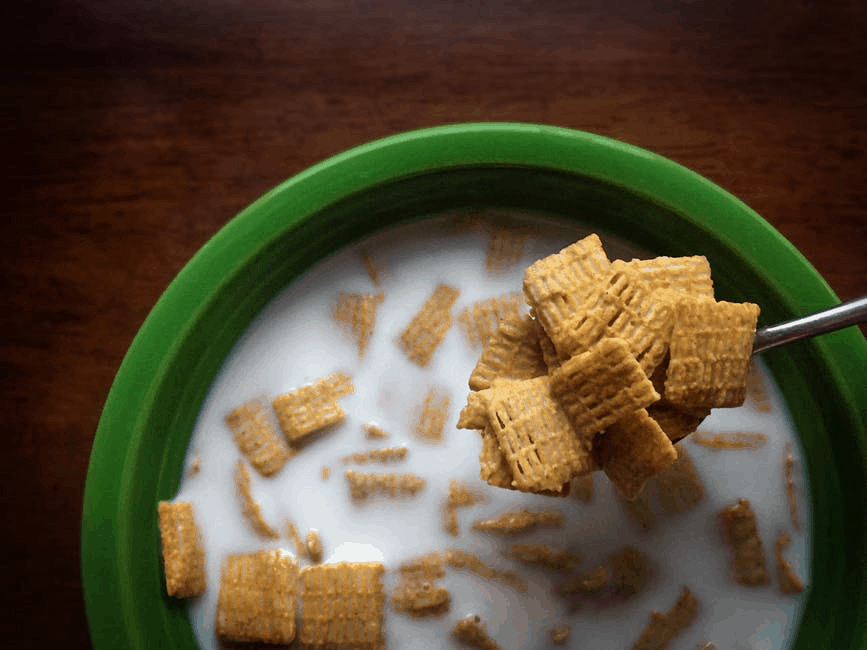
We aren’t saying all cereals are a no-go – some cereals are as healthy as salad while others are like scarfing down a chocolate cake – it pays to spend a little extra time in the cereal aisle to make the right choice.
Fruit Juices
There’s a popular belief that fruit juices are healthy and should be a part of your diet.
Well, here’s the bad news – fruit juices, even when it’s all natural without added sugars, do not contain the same nutritional value as of that fruit.
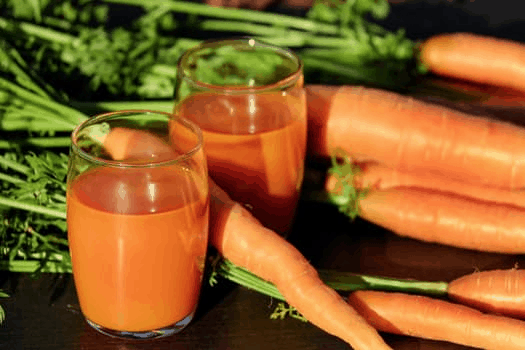
Juicing removes the skin and pulp which are the main sources of fiber and nutrients of the fruit. Without the fibrous part, you are only drinking the sugar from the fruit. This means that the sugar will easily get absorbed thereby rapidly increasing the blood sugar of the body. Even if some pulp is added back to the juice the quality and nutrient value will not be same as the original intact fruit.
You’re better off just eating a whole fruit – it’ll make you feel fuller whereas gulping down a box of juice won’t help with your appetite.
Couscous
Enough of this exotic-looking grain – despite its whole grainy appearance, it’s actually just refined wheat and has a similar nutritional value to white rice.
Low-GI foods are those 55 and under, and the thing is, neither rice nor couscous is considered low GI. Couscous has a GI rating of 65 per 150g while white rice has a GI rating of 72 per 150g. Although couscous is lower in fat (around 2g per 100g) and contains some protein and fibre, it is still mainly processed carbohydrate.
If you’re a fan, do yourself a favour and switch to the whole wheat variety or better yet, choose bulgur wheat or quinoa instead.
What’s There Left To Eat?
It’s easy to feel that you’ve run out of healthy options, especially if your favourite foods are listed above. As a general rule of thumb – whole, unprocessed foods like fruits, vegetables, and whole grains are definitely the better choice if you’re looking to shed some pounds.
Do you find yourself feeling tired and lacking the energy level to perform everyday? Feel like everyone else is energized while you’re on your desk struggling to focus?
We’ve all experienced low days, but it’s not normal to feel that way all the time.
Here’s the deal: Studies have repeatedly shown that our modern diet lacks essential nutrients that our bodies require, it also contains many undesirable and harmful compounds. If you’re not getting at least 5 servings of fruits and vegetables a day, that’s no surprise.
What if you’ve just been missing a few essential nutrients for your body to function optimally, and that tiny difference in nutrition is causing you major setbacks?
How you can start repairing your body’s cells
If anything I’ve said above sounds familiar to you, then let me show you how to start fixing it.
While there is no shortcut to losing that extra weight and feeling your best, the key is to cover all your nutritional bases. Your best bet is a supplement that does that in a natural way, providing all the essential vitamins and minerals your body needs in a bioavailable form.
Euglena P-3 is a natural all-in-one product that allows you to conveniently enjoy the benefits of 7 conventional health supplements. It consists of Euglena which is a species of microalgae that is unique to Okinawa, Japan. This hidden secret from Japan, that some attribute to their long lifespans, is known to help boost immune systems while effectively eliminate toxins such as fats, cholesterol, and purines thanks to Paramylon – a compound that can only be found in Euglena.
Our metabolic rate tends to slow down as we age, but Euglena P-3 would be able to help to boost your metabolism and effectively manage our body weight.



Containing 60 essential nutrients, this supplement ensures that you’re getting the required nutrients. Your body requires these vitamins and minerals for millions of biological processes every day, missing key nutrients can result in failures that lead to inefficient cell functioning, and major consequences to your body in the long run. Consuming this on a daily basis will provide you with the 7 key factors to keep your body working, repairing and rejuvenating well.
Bottom line?
If you’re feeling sluggish and want to ensure your body is in tip top condition, it’s time to give it a try. We all need that extra help sometimes, and Euglena P-3 detoxes your body, increases your energy levels and metabolism, all whilst making sure your nutrient and vitamin intakes are met.
So what are you waiting for? Order Euglena P-3 now!
Find out more here .








